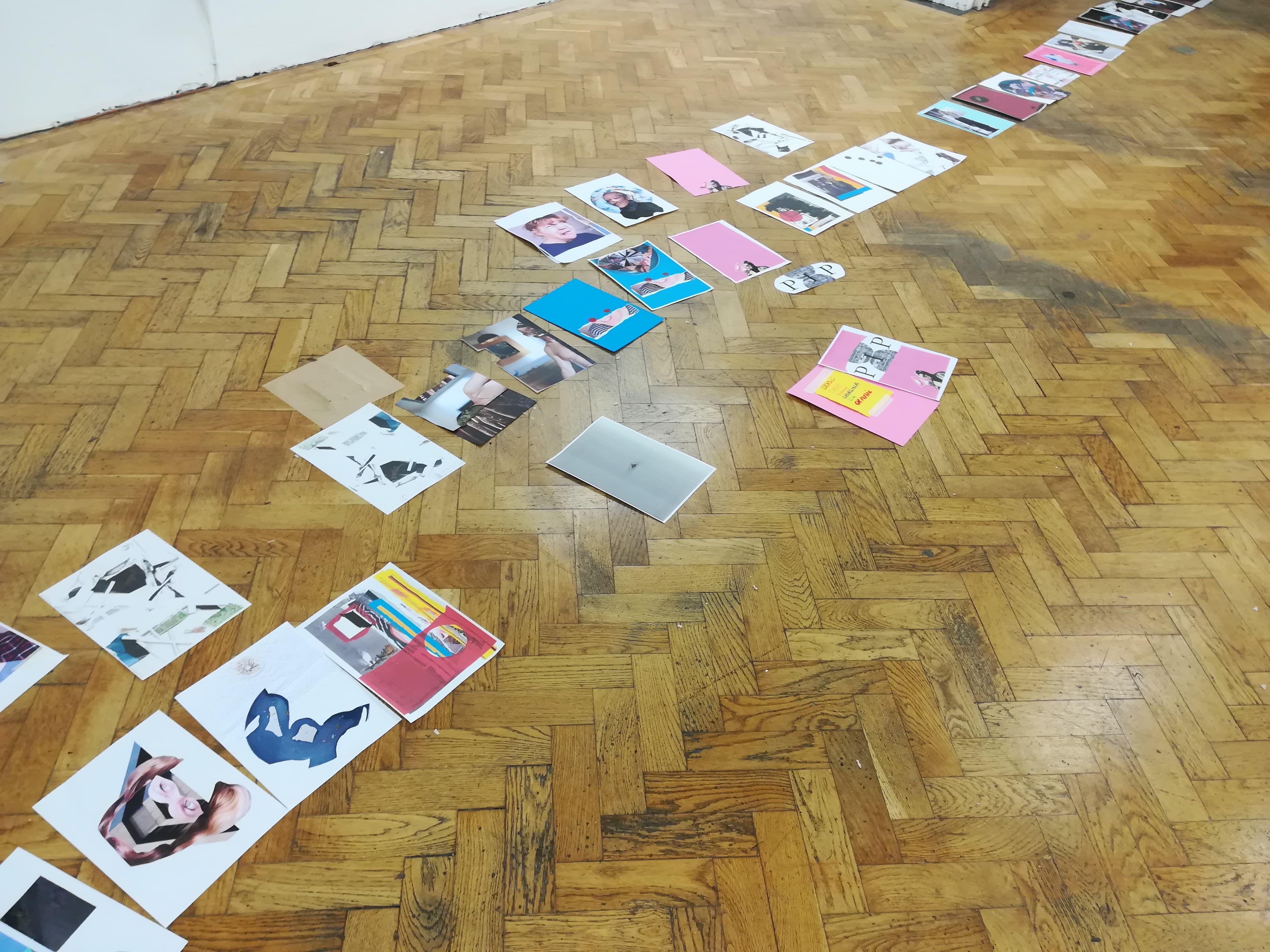PIP
OCTOBER 2018
ART ACADEMY
LONDON COLLEGE OF COMMUNICATION
BA PHOTOGRAPHY
‘PIP’ Art Academy Show was an initiative led by eight third year students from BA (Hons) Photography from London College of Communication, which took place in the beginning of December 2018. Including a week-long programme of workshops and discussion led by Alexandra Lethbridge, Beverley Carruthers, Peter Ainsworth, Johny Briggs and Shoair Mavlian and Revolv Collective, with the main focus to create a space for experimentation.


The eight students taking part investigating various themes and techniques in their practices. One of them - Annie Hibberd works with textiles, exploring the role of fabric in photography; employing natural dyes she creates juxtapositions between man-made structures and nature. While another student - Lia Kingdon uses origami shapes within her practice, folding photographs and creating 3D sculptural objects, with imagery of urban landscapes. Donna Tai utilises pressed flowers and polaroid photographs questioning the various relationships that occur between couples. Lottie Keating, another of the students’ part of the workshop had spent the last months creating photographs with an ethnographic feel of plates, interested in the ways objects can store pieces of one's identit
y. Georgina Foster on the other hand uses self-portraiture to recreate situations and experiences of the everyday life along with re-enactment and staging, she shifts between roles and emotions. And last of all, Lucas Gabellini-Fava collects various elements of data of his father's personality and their relationship. Employing the medium of photography, writing and archiving he is on the steps of constructing an Artificial Intelligence.
For the workshop, the students were invited to bring images and work individually as well as collectively with the sole idea of using the work of others. The workshop had the goal of blurring boundaries between their art practices. Creating a collaborative playground solely for rule breaking, armed with scissors and craft materials the next few hours were spent in a flourishing production of new collages. Starting from a single appropriation of a piece, then followed by a second and a third, and even using the scraps of paper in the formation of artworks. Using materials brought and found within the Art Academy, while playing with a photocopy and a scanner - the boundaries of their practices were fully merged.
![]()
y. Georgina Foster on the other hand uses self-portraiture to recreate situations and experiences of the everyday life along with re-enactment and staging, she shifts between roles and emotions. And last of all, Lucas Gabellini-Fava collects various elements of data of his father's personality and their relationship. Employing the medium of photography, writing and archiving he is on the steps of constructing an Artificial Intelligence.
For the workshop, the students were invited to bring images and work individually as well as collectively with the sole idea of using the work of others. The workshop had the goal of blurring boundaries between their art practices. Creating a collaborative playground solely for rule breaking, armed with scissors and craft materials the next few hours were spent in a flourishing production of new collages. Starting from a single appropriation of a piece, then followed by a second and a third, and even using the scraps of paper in the formation of artworks. Using materials brought and found within the Art Academy, while playing with a photocopy and a scanner - the boundaries of their practices were fully merged.


Reusing papers and reminding of the Russian art zines from the last century or simply destroying the classical layout of a photobook, the LCC students created an experimental zine with an extraordinary approach towards photography, appropriation and collaboration.
Cutting, cropping, slicing, pairing and reimagining together - the result destroyed the notion of the authorship as it was impossible to scrutinise whose work was used and who was the initial creator. This therapeutic process gave them a new way of seeing and working together. The workshop concluded with a zine printed in a limited edition of 30 copies. Get in touch on info@revolv.org.uk if you would like to purchase a copy.